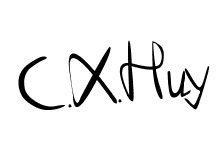
Tìm số nguyên tố $p_1,p_2,p_3,p_4,p_5$ sao cho $p_1p_2p_3p_4p_5=p_1+p_2+p_3+p_4+p_5+2011$
#1
 Posted 29-12-2011 - 19:20
Posted 29-12-2011 - 19:20

- nhungvienkimcuong likes this
Discovery is a child’s privilege. I mean the small child, the child who is not afraid to be wrong, to look silly, to not be serious, and to act differently from everyone else. He is also not afraid that the things he is interested in are in bad taste or turn out to be different from his expectations, from what they should be, or rather he is not afraid of what they actually are. He ignores the silent and flawless consensus that is part of the air we breathe – the consensus of all the people who are, or are reputed to be, reasonable.
Grothendieck, Récoltes et Semailles (“Crops and Seeds”).
#2
 Posted 29-12-2011 - 19:53
Posted 29-12-2011 - 19:53

Nếu không có số nào chia hết cho 2 thì $VT$ không chia hết cho 2 còn $VP\vdots 2$ nên loại
Vậy không có các số nguyên tố nào thỏa mãn phương trình trên.
---------------------------------------------------------
Anh "nỏ" biết là có đúng hay không nữa
Edited by Cao Xuân Huy, 29-12-2011 - 19:57.
- duongld, perfectstrong and Tham Lang like this
Cao Xuân Huy tự hào là thành viên VMF

#3
 Posted 30-12-2011 - 12:36
Posted 30-12-2011 - 12:36

Không mất tính tổng quát, giả sử $p_1\le p_2\le p_3\le p_4\le p_5$.
Nếu $p_1>2$ thì $p_1p_2p_3p_4p_5$ lẻ, mà $p_1+p_2+p_3+p_4+p_5+2011$. Vậy $\boxed{p_1 = 2}$.
Nếu $p_2>2$ thì $2p_2p_3p_4p_5$ chẵn, mà $2+p_2+p_3+p_4+p_5+2011$ lẻ. Vậy $\boxed{p_2 = 2}$.
Ta có ba trường hợp.
- TH1: $p_3=p_4=2$, không thỏa mãn.
- TH2: $p_3=2$ thì $8(p_4-1)(8p_5-1)=16137=9.11.163$. Vô nghiệm.
- TH3: $p_3>2$, vì $p_3\le p_4\le p_5$ đều nguyên tố nên $p_3<11$, như vậy chỉ cần xét các trường hợp của $p_3$ là $3,5,7$.
$\boxed{\text{Kết luận}}$. Phương trình vô nghiệm. $\qquad \qquad \blacksquare$
- Cao Xuân Huy, Tham Lang, nguyenta98 and 3 others like this
Discovery is a child’s privilege. I mean the small child, the child who is not afraid to be wrong, to look silly, to not be serious, and to act differently from everyone else. He is also not afraid that the things he is interested in are in bad taste or turn out to be different from his expectations, from what they should be, or rather he is not afraid of what they actually are. He ignores the silent and flawless consensus that is part of the air we breathe – the consensus of all the people who are, or are reputed to be, reasonable.
Grothendieck, Récoltes et Semailles (“Crops and Seeds”).
1 user(s) are reading this topic
0 members, 1 guests, 0 anonymous users




